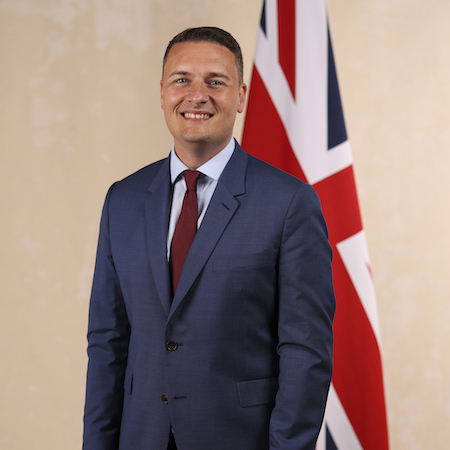Addressing health leaders at NHS ConfedExpo 2025 in Manchester yesterday (June 12), the Health and Social Care Secretary Wes Streeting promised no more “top-down reorganisation” and an end to “top-down control” in the forthcoming 10 Year Plan for the NHS.
In what he insisted has to be a “decade of renewal,” the Health Secretary outlined how the transformational shifts in the 10 Year Plan – from analogue to digital, hospital to community and sickness to prevention – will be achieved through devolving power to the frontline and creating a more diverse, continuously improving health service that delivers better care for patients and value for taxpayers.
Wes Streeting acknowledged that making the transition to a radically different operating model will not be easy. Rather, it will be a “mammoth task,” that will see many services that are today delivered in hospital instead taking place on the high street, over the phone or through the app.
The 10 Year Plan also bears responsibility to prepare the NHS for the future world of genomics, artificial intelligence, predictive and preventative medicine, a field in which there is an ambition for the NHS to become a world-leader.
“Some country will lead the charge in these fields. Why shouldn’t it be Britain?’ he questioned. “Private healthcare companies will be queueing up to make sure their customers benefit from this revolution. Why shouldn’t NHS patients be at the front of that queue?”
Principles of the new operating model
• Clarity. Priorities will be clear, with centrally mandated and fewer targets, and leaders responsible for delivering outcomes.
The centre will continue to shrink and become more agile. Its role will be to drive excellence and use its central procurement muscle to much better effect.
• Consequences for performance. Referring to Foundation Trusts as “one of the most successful NHS reforms in the last 25 years,” the Health Secretary promised to “reinvigorate the model,” saying the philosophy of greater autonomy and responsibility for boards and the freedom to innovate had been lost over the last decade, buried under a bureaucratic culture.
The 10 Year Plan will introduce incentives, freedoms flexibilities and freedom from central control for local providers delivering a quality service, whilst underperforming providers will be supported to improve and if services are wrongly configured the provider will be empowered to change.
Leadership also comes under scrutiny, with Wes Streeting saying: “Where there are failures in leadership and culture, the leadership will be replaced, with bonuses to attract our best leaders into our most challenged Trusts. “Where there are repeated financial problems, the failing provider may be placed into administration and taken over by another provider.
“This will be a decade-long project of improvement, and we will start in working class, rural and coastal communities.
“This year, we will require regions to begin drawing up plans for failing providers and begin the process of turnaround.”
• Leadership matters. The 10 Year Plan will set higher standards for leaders, nurture and develop a new era of modern NHS leaders who are able to lead systems and deliver better outcomes for patients, not just more activity. Under the new system, pay will be tied to performance, good work will be rewarded, and so will stepping up to take on the most challenged Trusts.
The Health Secretary also set out an ambition for the traditional boundaries to be broken down around the expectations of how services should be arranged, saying there is no reason why acute Trusts can’t provide primary care, or successful GPs should not run local hospitals, or nurses lead neighbourhood health services.
“I would hope these that those old-fashioned labels – acute, community – become increasingly meaningless,” he says.
• Money talks. Financial incentives will be used to invest more in public health outcomes, not just in activity that reacts to sickness, with resources tied to outcome-based targets. All commissioners and providers will have a responsibility to help meet those targets, with new financial flows driving resources from hospitals to the community.
Deficits will no longer be treated as a “fact of life.”
• The patient is king. The radical devolution of power within the NHS will give the voice back to the patient, within a system that is focused on outcomes rather than inputs.











